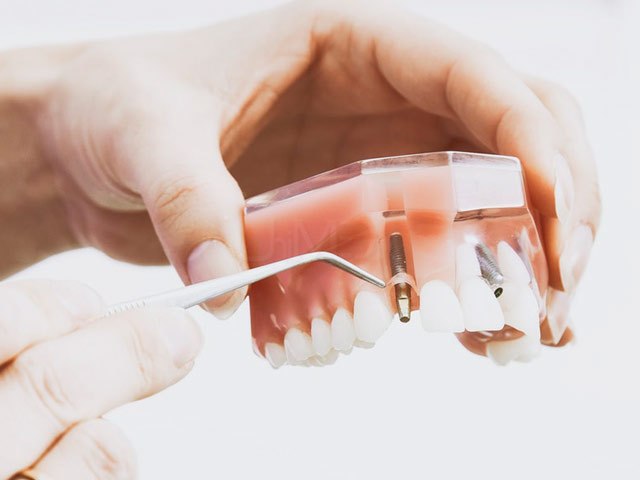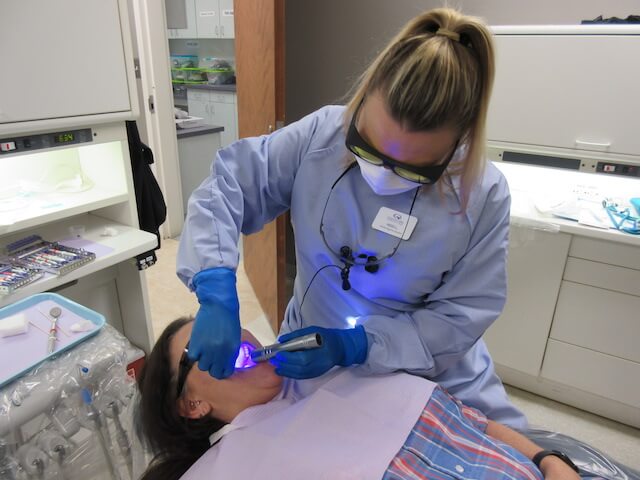Dental implants have revolutionized the field of dentistry, offering a long-term solution for individuals with missing teeth. These prosthetic teeth roots not only restore aesthetics but also functionality, allowing individuals to eat, speak, and smile with confidence. However, achieving optimal outcomes with dental implants requires more than just the initial surgical procedure. Proper oral care maintenance plays a crucial role in ensuring the longevity and success of dental implants.
Understanding Dental Implants
Before delving into the importance of oral care maintenance, it’s essential to grasp the fundamentals of dental implants. Dental implants are titanium posts that are surgically placed into the jawbone to serve as artificial tooth roots. Once implanted, these posts fuse with the surrounding bone through a process called osseointegration, providing a sturdy foundation for replacement teeth, such as crowns, bridges, or dentures.
The Significance of Oral Care Maintenance
While dental implants are designed to be durable and long-lasting, they are not impervious to damage or complications. Without proper oral care maintenance, various issues can arise, jeopardizing the success of the implants and overall oral health. Here’s why maintaining good oral hygiene is essential after getting dental implants:
Preventing Infection:
Proper oral hygiene practices, such as brushing and flossing regularly, help remove plaque and bacteria that can accumulate around dental implants. If left unchecked, these harmful microorganisms can lead to gum disease and peri-implantitis, a condition characterized by inflammation and infection around the implant site. By maintaining cleanliness, individuals can reduce the risk of infection and preserve the health of surrounding tissues.
Protecting Bone Health:
Osseointegration, the process by which dental implants integrate with the jawbone, relies on adequate bone density and quality. Poor oral hygiene and untreated gum disease can compromise bone health, potentially leading to bone loss around the implants. By practicing proper oral care, individuals can preserve bone density and ensure the stability of their dental implants over time.
Prolonging Implant Lifespan:
Regular maintenance appointments with a dental professional are essential for monitoring the health of dental implants. During these visits, dentists can assess the condition of the implants, identify any potential issues early on, and provide necessary interventions to prevent complications. Additionally, professional cleanings help remove plaque and tartar buildup, promoting the longevity of dental implants and supporting structures.
Enhancing Aesthetic Results:
Maintaining proper oral hygiene not only preserves the functionality of dental implants but also enhances their aesthetic appearance. Stains, plaque accumulation, or gum inflammation can detract from the natural beauty of replacement teeth. By keeping the implant site clean and healthy, individuals can enjoy a radiant smile and boost their confidence in social and professional settings. For more information or to read all about the proper care after dental implants, check out these details to know more.

Tips for Oral Care Maintenance with Dental Implants
To ensure the success of dental implants and maintain optimal oral health, individuals should follow these essential tips:
- Brush Twice Daily: Use a soft-bristled toothbrush and fluoride toothpaste to clean teeth and implants thoroughly. Pay special attention to areas around the implant where plaque can accumulate.
- Floss Regularly: Clean between teeth and around implants using dental floss or interdental brushes to remove food particles and plaque.
- Use Antimicrobial Mouthwash: Rinse with an antimicrobial mouthwash to reduce bacteria and prevent infection around dental implants.
- Attend Regular Dental Check-ups: Schedule routine dental visits for professional cleanings and examinations to monitor the health of dental implants and address any concerns promptly.
- Avoid Smoking: Smoking can impair healing and increase the risk of complications after dental implant surgery. Quitting smoking or avoiding tobacco products can improve implant success rates and overall oral health.
Conclusion
Proper oral care maintenance is paramount for ensuring the long-term success and stability of dental implants. By adopting good oral hygiene habits and attending regular dental check-ups, individuals can preserve the health and functionality of their implants, enjoying the benefits of a beautiful smile and improved quality of life.
Remember, maintaining oral health is an ongoing commitment that requires diligence and attention to detail. By prioritizing oral care, individuals can safeguard their investment in dental implants and enjoy a lifetime of confident smiles.





